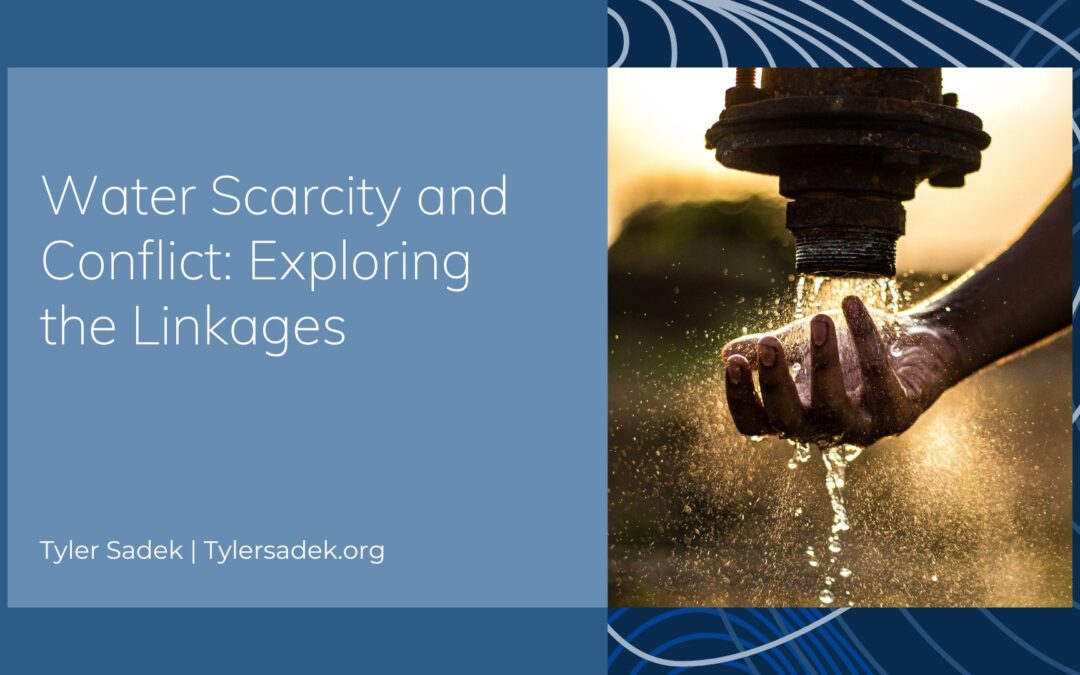Water scarcity is a pressing global issue that affects millions of people worldwide. Beyond its impact on livelihoods and ecosystems, water scarcity can also contribute to conflicts and tensions among communities and nations. Understanding the linkages between water scarcity and conflict is essential while also examining the causes, consequences, and potential solutions to this complex and multifaceted challenge.
Understanding Water Scarcity
Water scarcity occurs when demand exceeds availability due to natural factors or human activities. Factors such as climate change, population growth, unsustainable water management practices, and pollution can exacerbate water scarcity. As water becomes scarce, competition for limited water resources intensifies, potentially leading to conflicts and social unrest.
The Linkages Between Water Scarcity and Conflict
Resource Competition
Water scarcity can trigger conflicts over access to water resources, particularly in areas where water is essential for agricultural, industrial, or domestic purposes. Competing interests and unequal distribution of water resources can fuel tensions and disputes between communities, regions, or even nations.
Economic Impact
Water scarcity hampers agricultural productivity, disrupts supply chains, and affects economic development. The resulting financial strain can heighten social and political tensions, leading to conflicts over limited resources and exacerbating existing inequalities.
Migration and Displacement
Water scarcity can contribute to population displacement as people migrate for water and better livelihood opportunities. This mass movement of people can strain resources and create tensions between host communities and newcomers, leading to conflicts over access to water and other essential services.
Transboundary Water Conflicts
Shared water resources, such as rivers and lakes that cross national boundaries can become sources of contention between countries. Disputes over water allocation, dam construction, or water diversion can escalate into conflicts, particularly in regions where water scarcity is prevalent.
Addressing Water Scarcity and Conflict
Sustainable Water Management
Implementing sustainable water management practices is crucial for addressing water scarcity. This includes efficient irrigation techniques, water recycling and reuse, and watershed management strategies. We can reduce tensions and conflicts over water resources by optimizing water use and ensuring equitable distribution.
Cooperation and Diplomacy
Promoting dialogue, collaboration, and diplomacy among stakeholders, including communities, governments, and international organizations, is essential. Developing shared water management agreements and frameworks can help mitigate conflicts and foster peaceful resolutions.
Integrated Policies and Planning
Integrated approaches considering water management in conjunction with other sectors like agriculture, energy, and urban development are vital. Coordinated planning and policy implementation can minimize water stress and prevent conflicts arising from competing interests.
Climate Change Adaptation
Addressing the challenges of climate change is crucial for managing water scarcity. Developing climate change adaptation strategies and investing in resilient infrastructure can help communities and nations better cope with water scarcity and minimize conflicts.
Water scarcity and conflict are intertwined challenges with far-reaching implications for communities, regions, and nations. By understanding the linkages between water scarcity and conflict, implementing sustainable water management practices, promoting cooperation, and addressing the impacts of climate change, we can work towards a future where water resources are managed equitably, tensions are mitigated, and conflicts are resolved peacefully.

